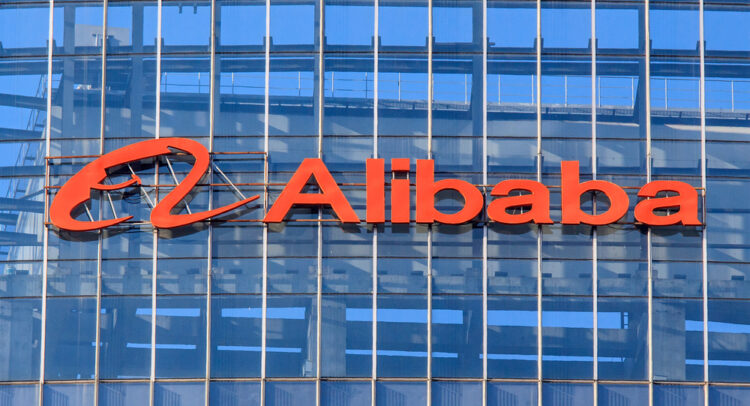The major stocks in Hong Kong are Alibaba (Hong Kong:9988) share price has fallen 27.5% over the past year. Alibaba investors are waiting for a turnaround as the Chinese e-commerce and tech giant continues to struggle due to macro pressures, intense competition, regulatory headwinds and rising U.S.-China tensions. Meanwhile, many analysts are optimistic about Alibaba's long-term prospects but cautious about short-term pressures.
Alibaba's recent performance
2023 was a tough year for Alibaba as it grappled with weak consumer spending amid macro uncertainty. Additionally, the company is being pushed out by discount platforms like Pinduoduo, owned by PDD Holdings (NASDAQ:PDD).
Alibaba's revenue for the fiscal third quarter (ended December 31, 2023) rose 5% to RMB 260.3 billion, falling short of expectations. Furthermore, the company's net profit decreased by 77% to RMB 10.7 billion. This was mainly due to market price fluctuations related to equity investments and impairment losses related to supermarket chain Sun Art and video streaming service Youku.
Amid increased competition, revenue from Alibaba's Chinese e-commerce platforms Taobao and Tmall rose just 2%, while revenue from its cloud computing business rose 3%. CEO Eddie Wu has made it clear that the company's top priority is to re-accelerate growth in these core businesses.
Efforts to overcome difficult situations
Alibaba announced a major restructuring last year with plans to reshuffle senior positions and split the organization into six divisions. The company also said it would consider listing these units. However, in November 2023, Alibaba stalled IPO plans for its cloud division due to uncertainties related to U.S. chip export restrictions.
Additionally, the company announced earlier this week that it had withdrawn its IPO plans for its logistics arm, Cainiao, citing difficult conditions in Hong Kong's IPO market. In exchange, the company intends to purchase the remaining 36% of Cainiao shares it does not currently own. The management believes that it is the right time to double down on the logistics business considering the intense competition in the e-commerce sector.
Overall, Alibaba is making investments and efforts to strengthen its core business, strengthen its position, and regain market share. Additionally, to take advantage of the drop in stock prices, the company announced an additional $25 billion authorization under its share buyback plan, bringing the total amount to $35 billion.
Alibaba is also actively investing in generative artificial intelligence to capture significant opportunities in this rapidly growing market.
Should you buy, sell or hold Alibaba?
Following the company's announcement about canceling Cainiao's IPO, JPMorgan analyst Alex Yao said pursuing an IPO now would not help it achieve its original goal of unlocking shareholder value. He said it might be possible.
Yao believes Alibaba stock may come under pressure in the short term due to Cainiao's increased infrastructure investment. Having said that, analysts believe that such investments will pay off in the long run considering the rapid growth of cross-border e-commerce business. Mr. Yao rates Alibaba stock as a “buy.”
The consensus rating for Alibaba stock is “Moderate Buy'' with 4 “buy'' ratings and 2 “hold'' ratings. The average price target of HK$100.87 for 9988 companies suggests an upside potential of around 44% from current levels.

conclusion
Although Alibaba faces several short-term pressures, including increased competition in China's e-commerce space, several analysts are bullish on the company's long-term growth potential and turnaround efforts.
disclosure

